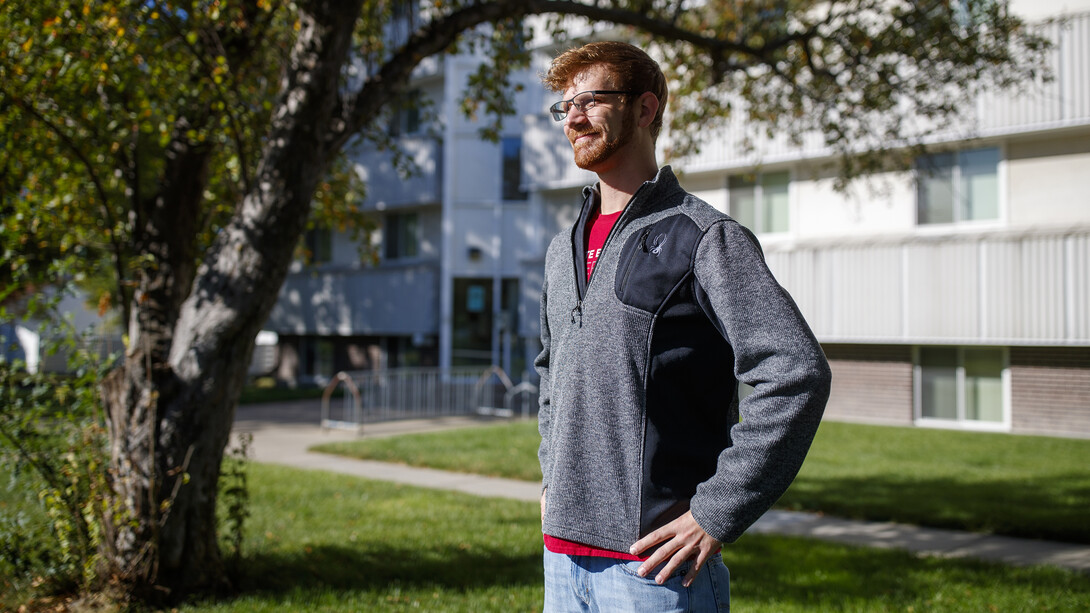
Jon Haag has been in recovery from substance use for over four years now, and he’s the first to admit that the journey isn’t always easy.
But by seeking out the right help, meeting the right people and staying firm in his path to sobriety, Haag is now well on his way to earning a degree in mechanical engineering from the University of Nebraska–Lincoln.
This semester, he’s using his experience to give back as one of the founding members of the Collegiate Recovery Community, a new organization designed to support Huskers healing from addiction.
“I originally got involved with the CRC because there weren’t very many resources for students in recovery at UNL, and I find it important to be there for the next person that may need a helping hand — especially when they’re in early recovery and possibly more vulnerable,” Haag said.
Collegiate recovery communities provide a safe space for students recovering from substance use to live and socialize together, as well as receive access to resources like counseling, well-being coaching, tutoring and financial aid.
When plans for Nebraska’s Collegiate Recovery Community were announced last year, one of the hallmarks of the program was a shared living space for recovering students in Husker Hall at 23rd and U streets to be opened this fall.
That opening has been put on hold due to the ongoing pandemic — but Haag and his fellow students are still finding ways to stay connected. The community holds Alcoholics Anonymous meetings at 8 p.m. each Monday and is also hosting a socially distanced “sober tailgate” and ice cream social during the upcoming football season.
The events are meant to create a supportive network where students can hold each other accountable, as well as provide enjoyable social experiences where alcohol or drugs aren’t part of the equation.
“I always tell people that recovery is more fun than it might seem. You don’t need to drink to have fun,” Haag said.
The positive impact of collegiate recovery communities is backed by research. Studies have shown that that 95% of students who participate in such programs during college maintain their sobriety, and they also earn higher GPAs and graduate at higher rates.
“Approximately 400 students on our campus could benefit from having access to a collegiate recovery community,” said Connie Boehm, director of Big Red Resilience and Well-being. “This was calculated using a formula developed by Texas Tech University’s Center for Collegiate Recovery Communities. We envision that as the CRC at Nebraska grows, students who may have been questioning their alcohol or drug use may be nudged to seek support when they otherwise might not have.”
The Collegiate Recovery Community joins a host of other mental health initiatives being implemented by the University of Nebraska–Lincoln. New programs include Big Red Resilience and Well-being, a peer coaching service; Counselor-in-Residence, which places mental health professionals inside of campus residence halls; and suicide prevention gatekeeper training. The university has also expanded the number of visits students can make to Counseling and Psychological Services.
Students, faculty and staff seeking to further support Huskers in recovery can participate in Recovery Ally training on the Big Red Resilience and Well-being website.







